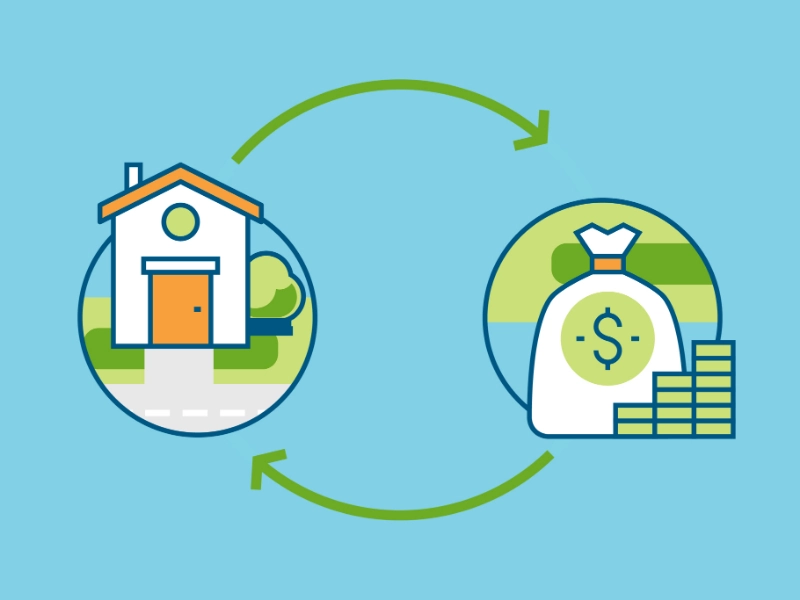Common Errors to Avoid When Applying for a Mortgage
Getting a mortgage involves a lot of steps and is a huge commitment. However, some borrowers commit errors that can result in higher interest rates or cause their loan to fail. Making significant life changes or making expensive credit purchases are among the most frequent errors. Additionally, lenders may get suspicious if you switch financial institutions; they need to see two months' worth of consistent bank statements.
1. Not doing any comparison shopping

2. Ignoring the preapproval
 Even though it might seem apparent, some buyers neglect to make the effort to be preapproved for a mortgage, which can help them shop within their budget and make them more appealing to sellers. That would result in a subsequent loan denial; therefore, that would be a mistake.
In order to obtain a complete financial picture of your circumstances, the lender will review your tax returns, savings accounts, and other data throughout the screening process. They will be able to ascertain the kind of mortgage you are eligible for and the minimum down payment amount, thanks to this.
Keeping things as they are, from preapproval to closure, is crucial. In order to prevent having an influence on your debt-to-income ratio, you should refrain from taking out new credit cards, making large purchases, or canceling current ones. It's advisable to refrain from transferring funds between your bank accounts. These modifications may mislead the underwriter and jeopardize your loan. Make sure you get in touch with your loan officer as soon as something changes.
Even though it might seem apparent, some buyers neglect to make the effort to be preapproved for a mortgage, which can help them shop within their budget and make them more appealing to sellers. That would result in a subsequent loan denial; therefore, that would be a mistake.
In order to obtain a complete financial picture of your circumstances, the lender will review your tax returns, savings accounts, and other data throughout the screening process. They will be able to ascertain the kind of mortgage you are eligible for and the minimum down payment amount, thanks to this.
Keeping things as they are, from preapproval to closure, is crucial. In order to prevent having an influence on your debt-to-income ratio, you should refrain from taking out new credit cards, making large purchases, or canceling current ones. It's advisable to refrain from transferring funds between your bank accounts. These modifications may mislead the underwriter and jeopardize your loan. Make sure you get in touch with your loan officer as soon as something changes.
3. Ignoring Your Credit
 Purchasing a house is among the most significant financial choices you will ever make. If you make mistakes along the way, the mortgage application process can become difficult and expensive. Fortunately, by being proactive and aware of the important details surrounding mortgage loans, you may steer clear of these typical blunders.
Your chances of being approved and the interest rate you can get are largely dependent on your credit score. Paying off debt, fixing mistakes, and preserving stability in your job, income, and financial accounts are the key ways to raise your credit. Additionally, since creating additional accounts can lower your score, you should refrain from doing so while applying for a mortgage. Lenders consider the length of your credit history, payment history, and credit utilization—the ratio of what you owe to your available credit. Significant cash moves could also raise an alarm because lenders will want to know where your money is coming from. You may establish a solid credit profile and get a competitive mortgage interest rate by managing your credit responsibly over time.
Purchasing a house is among the most significant financial choices you will ever make. If you make mistakes along the way, the mortgage application process can become difficult and expensive. Fortunately, by being proactive and aware of the important details surrounding mortgage loans, you may steer clear of these typical blunders.
Your chances of being approved and the interest rate you can get are largely dependent on your credit score. Paying off debt, fixing mistakes, and preserving stability in your job, income, and financial accounts are the key ways to raise your credit. Additionally, since creating additional accounts can lower your score, you should refrain from doing so while applying for a mortgage. Lenders consider the length of your credit history, payment history, and credit utilization—the ratio of what you owe to your available credit. Significant cash moves could also raise an alarm because lenders will want to know where your money is coming from. You may establish a solid credit profile and get a competitive mortgage interest rate by managing your credit responsibly over time.
4. Failure to make on-time payments
 Choosing a mortgage is a big financial choice that has an impact on your lifestyle. In addition, it's a huge obligation that needs to be repaid on a regular basis.
Your credit may suffer if you miss a mortgage payment, which may make it more difficult for you to get future loans. It may also raise your interest rate and tack on late fees. Foreclosure may result from skipping payments in extreme circumstances.
A mortgage should not be obtained before making any significant financial changes, such as taking on new debt or changing jobs. To ensure they are confident you will be able to repay the loan, lenders desire stability in your work, income, and financial situation.
Check your account and contract to discover if there are any prepayment penalties before making a lump cash or loan payment. These frequently match the sum of the principal you're paying off. To learn more, you can also do an online search for your lender.
Choosing a mortgage is a big financial choice that has an impact on your lifestyle. In addition, it's a huge obligation that needs to be repaid on a regular basis.
Your credit may suffer if you miss a mortgage payment, which may make it more difficult for you to get future loans. It may also raise your interest rate and tack on late fees. Foreclosure may result from skipping payments in extreme circumstances.
A mortgage should not be obtained before making any significant financial changes, such as taking on new debt or changing jobs. To ensure they are confident you will be able to repay the loan, lenders desire stability in your work, income, and financial situation.
Check your account and contract to discover if there are any prepayment penalties before making a lump cash or loan payment. These frequently match the sum of the principal you're paying off. To learn more, you can also do an online search for your lender.







